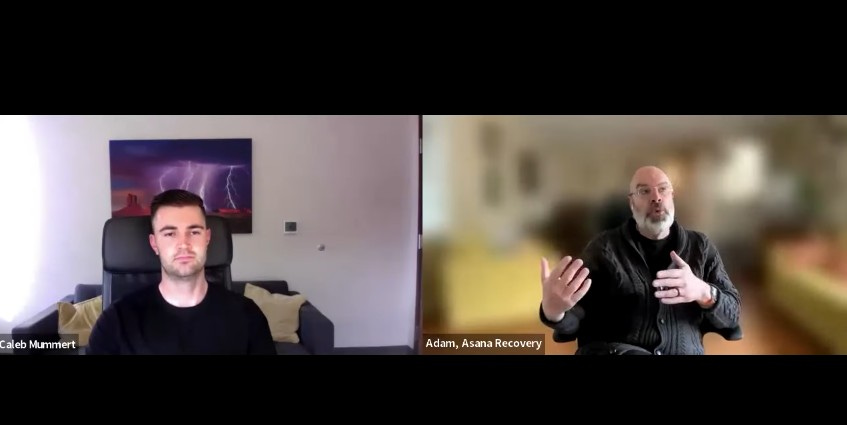📢"Recovery isn’t just about quitting drugs or alcohol—it’s about building a life you don’t want to escape from."
A few days ago, Asana Recovery COO Adam Shandrow sat down with Caleb Mummert from Mental Health Experts to discuss addiction recovery, the importance of stability after treatment, and how Asana Recovery helps patients rebuild their lives.
One of the biggest takeaways? Substance abuse is more often than not rooted in mental health issues—a reality that has become more evident over the last few years.
And when it comes to long-term sobriety, Adam made one thing clear: Two things make all the difference—stability and independence.
What Really Determines Long-Term Sobriety?
The host asked Adam:
“After a patient leaves the program, what do you like to see for them 6-12 months down the road? Is it mainly the environment that matters?"
Adam’s response:
“It’s a complex equation.
While environment does play a role, it’s not just about where you are—it’s about how structured and fulfilling your life is.
✔ When life is stable, you tend to enjoy it.
✔ When life feels uncertain, you look for an escape.”
And for many struggling with addiction, that "escape" means going back to old habits.
That’s why stability and independence are critical after treatment.
The AVEs Framework: A Blueprint for Lasting Recovery
At Asana Recovery, we recognize that rehab alone isn’t enough—patients need a clear, structured plan when they leave treatment. That’s why we implement the AVEs program, which ensures that every person who completes treatment is set up for success.
✔ Academics – Take a class, learn a skill, or continue personal development.
✔ Volunteer Work – Help others, build connections, and create a sense of purpose.
✔ Employment – Get a job, establish financial stability, and work toward independence.
This program makes sure that after treatment, people aren’t just staying sober—they’re creating a life worth staying sober for.
"Are you in a safe, secure environment? Do you have a healthy support system? Are you doing something that fills your bucket and keeps you motivated?"
— Adam Shandrow, COO of Asana Recovery
Why This Matters for People in Recovery
The most dangerous part of recovery isn’t always detox—it’s the months after rehab, when patients are back in the real world, facing old triggers and new challenges.
✔ Without structure, it's easy to fall back into bad habits.
✔ Without a support system, it's easy to feel isolated.
✔ Without purpose, it’s easy to feel lost.
That’s why treatment needs to go beyond just getting sober—it needs to help people build stability, independence, and a future that excites them.
But here’s the harsh truth: Insurance companies don’t care about long-term success—they care about cost.
Many insurance providers approve the minimum amount of treatment necessary, not what’s actually best for long-term recovery. This means that while 90 days in treatment may seem like a long time, it’s really just the beginning.
Once someone leaves rehab, it’s up to them—and their family—to continue the work.
✔ Will they surround themselves with the right people and environments?
✔ Will they follow through with therapy, meetings, and a structured routine?
✔ Will they take advantage of programs like AVEs to build a life they don’t need to escape from?
The longer someone stays in treatment, the better their chances of staying sober. Recovery doesn’t end when you walk out of rehab—it starts when you apply everything you’ve learned to real life.
💡 This is why friends, family, and those in recovery need to take an active role in creating an environment where relapse is less likely. Because at the end of the day, treatment lays the foundation—but what happens after treatment determines everything.
Watch the Full Interview
Adam’s conversation with Caleb Mummert dives deep into how mental health issues fuel addiction, why stability is so important, and how Asana Recovery helps patients long after they leave treatment.
📌 Watch the full interview on Mental Health Experts' Facebook page → [https://fb.watch/xZx7khLqsm/]
Looking for Addiction Treatment?
If you or a loved one is struggling with addiction, don’t wait. The first step is reaching out and exploring your options.
📞 Call Asana Recovery at (949) 763-3440
🔗 Verify Insurance
✔ Find the right level of care
✔ Get real support from people who understand
✔ Start your path to stability and independence
💡 Sobriety isn’t just about quitting—it’s about building a future you love. Let’s get started.
🎉Trivia Time!🎉
What day and year was the Betty Ford Center opened? And where is it located?
💡 Hint: This nonprofit treatment center was co-founded by Betty Ford, Leonard Firestone, and Dr. James West to help individuals struggling with substance dependence.
✅ How to Enter:
Email your answer to david@asanarecovery.com for a chance to win!
🎁 Prize: A $15 gift card (Uber, DoorDash, or Amazon – winner’s choice!)
🏆 Rules: Only one winner will be chosen, and the selection will take place after 24 hours. Good luck!
Funny but Brutally Honest Meme
Don’t let this be you, get treatment today!







